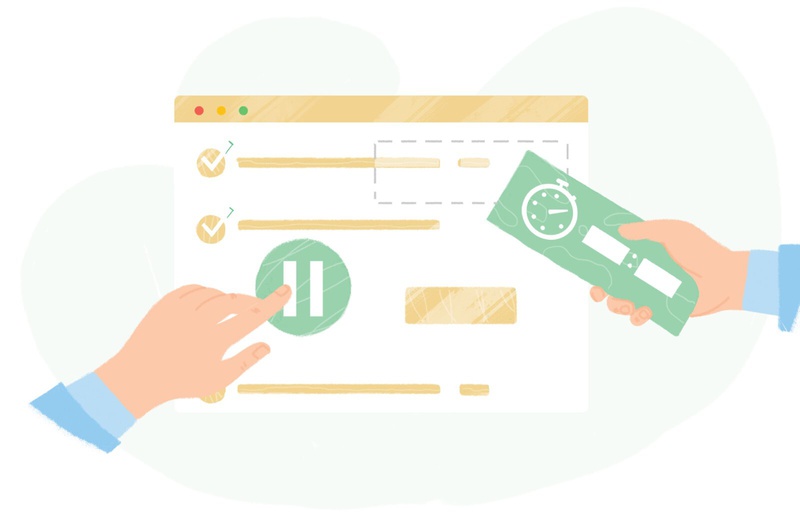How do you manage your company’s work? Asana? Trello? Jira? Github? Basecamp? Ever notice a little something missing that could help you work better?
One of those little thing is a work hours tracker, a piece of kit that could truly optimize the way you work.
Isn’t it a built-in feature?
You might assume that all project management systems nowadays come with a built-in hours tracker, but it’s not the case.
In fact, most project and task management apps don’t have such features. Why? Well, quite simply because it's not part of their core experience.
The best apps on the market do one singular feature–project management, taxi, lunch reservations, etc–but, they do it really well. Which is why, project management apps focus on project management, not time tracking.
A good time tracker is not just a start/stop button; it's all about reports, estimates, invoicing, payroll and much, much more.
Adding all of this into a project management app will highly complicate things on their end. The same applies to time trackers, they’ll never be able to replace a full-fledged project management tool; only complete it to create over powerful system.
Although some systems may provide some sort of time tracking functionality, this is often limited. And the majority, as we’ve said do not have it at all.
See Asana vs Trello or Asana vs Basecamp.
This is why to be able to track hours effectively you need a third-party app solution. The real question is how to choose the right one and how well both work together.
Do I really need to integrate?
If you already have all your work (tasks and projects) organized in an app, then to best track your time, the most effective solution is connecting it to an hours tracker.
This way you can just select from your already available tasks and start recording the time spent on them. Why would you spend your time copying your projects and tasks between apps? Especially when there is a better solution.
With Everhour, we take it one step further. When you open Trello, Asana or Basecamp, a timer appears in their interface as if it were a native feature; making it easy for you to use and connect to your current project, with little extra effort involved.
More reason why
Less open tabs = less distractions
Switching back and forth between apps to track time is taking you away from what truly matters. By integrating hour tracking into your project management software you can keep that focus on your work and achieve even better results.
This is one of the reasons why employees often don’t like to track time. Since it is not convenient for them to switch back and forth, they constantly forget doing so and, as a result, the data entered is not accurate.
Make everyone's life easier
Integrating a work hours tracker directly into your project management system simply makes your life less complicated.
It helps you teach your employees to manage better their time (saving yours), plus your team won’t have to spend their energy learning how to use an additional piece of software as it’s already integrated, saving you training costs.
Another benefit for integrating software such as Everhour is that once connected, all your tasks and projects will be in sync. It continues to work and show you the freshest data reports even when you’ve added a new project or changed the title of an existing one.
Estimates always right in front of you
With an integrated work hours tracker you’ll see the time spent and estimate displayed beside task titles ensuring you know how much work you did, when, how long it took, without any additional effort on your part.
This is important because many companies only share timesheet data with managers, and they’re often only looked at when it’s time to create a report or an invoice.
When you switch that around so that the entire team can constantly see estimates and time spent on tasks, it’s a different story altogether. It suddenly means that everyone can track progress and keep an eye on project progression, which means that everyone will hold you accountable.
Have you integrated yet?
Time tracking isn’t only about creating reports; it’s about learning from your time-wasting errors and optimizing your working process.
With an integrated work hours tracker, individual employees can see and understand how they use their time and make improvements. For your company this has two benefits – self-encouragement to work better and profitability.
